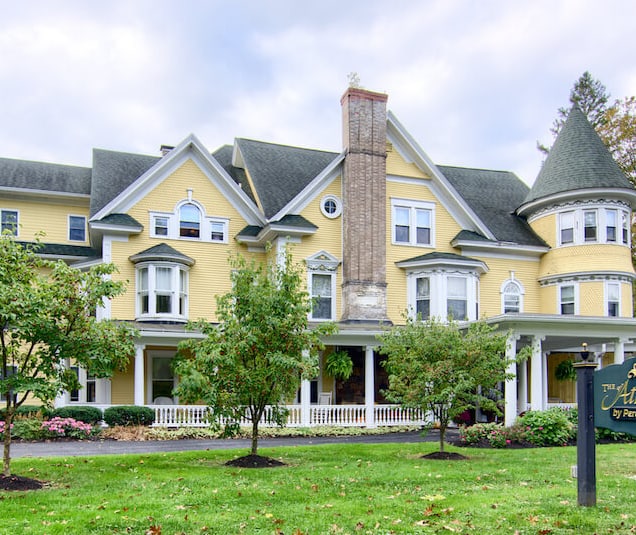As our parents age, their ability to manage their own affairs may become more difficult due to physical or cognitive decline, developing Alzehimers, dementia, Parkinson’s or other ailments. In such cases, becoming a legal guardian can be an important step to keep up their well-being and protect their interests. This process involves legal, emotional, and practical considerations. At Peregrine Senior Living, we understand the complexities involved in elder care and offer insights on how to navigate the process of becoming a guardian for an elderly parent.
Understanding Guardianship
Guardianship is a legal relationship established by a court, granting an individual (the guardian) the authority to make decisions on behalf of another person (the ward) who is unable to make decisions for themselves. This can include decisions about healthcare, finances, and living arrangements.
Determining the Need for Guardianship
The first step in becoming a guardian is to determine whether guardianship is necessary. Signs that an elderly parent may need a guardian include:
- Inability to manage finances, resulting in unpaid bills or financial exploitation.
- Difficulty making informed decisions about healthcare or personal care.
- Cognitive impairments, such as dementia or Alzheimer’s diseases, that affect daily living.
It is important to consider less restrictive alternatives before pursuing guardianship. These can include powers of attorney, healthcare proxies, or trusts that allow someone to assist without full legal guardianship.

The Legal Process of Becoming a Guardian
Filing a Petition
To initiate the guardianship process, you must file a petition with the court in the county where your parent lives. The petition should outline your relationship to the elderly parent, the reasons for seeking guardianship, and the specific types of decisions you will need to make on their behalf. Legal representation can be beneficial in navigating this process, making sure all necessary documentation is properly submitted.
Notifying Interested Parties
Once the petition is filed, the court requires that all interested parties be notified. This typically includes close family members, healthcare providers, and any current legal representatives. Notification makes all parties aware of the proceedings and have an opportunity to support or contest the guardianship.
Court Investigation
The court will conduct an investigation to determine the necessity of guardianship. This may involve interviews with the elderly parent, family members, and healthcare providers, as well as a review of medical and financial records. The court may also appoint an independent evaluator, such as a social worker or psychologist, to assess the elderly parent’s condition and needs.
Hearing
A court hearing will be scheduled to review the findings of the investigation and hear testimony from all relevant parties. During the hearing, you will present your case for why guardianship is necessary and how you intend to manage your parent’s affairs. The elderly parent will also have an opportunity to express their wishes and concerns. Based on the evidence and testimonies, the judge will decide whether to grant guardianship.
Court Order
If the court grants guardianship, a court order will be issued outlining the specific responsibilities and limitations of your guardianship. This order may include details on managing finances, making healthcare decisions, and providing for your parent’s daily needs. The court may also require periodic reports to ensure the guardianship is being managed appropriately.
Responsibilities of a Guardian
As a guardian, you will have several important responsibilities:
- Healthcare Decisions
You will be responsible for making healthcare decisions on behalf of your parent. This includes consenting to medical treatments, choosing healthcare providers, and making sure your parent receive appropriate medical care. It’s important to consider your parent’s wishes and best interests when making these decisions.
- Financial Management
Guardians are typically responsible for managing their parent’s finances. This can include paying bills, managing bank accounts, and overseeing investments. Keeping accurate records and providing regular financial reports to the court may be required.
- Personal Care
You may also be responsible for decisions related to your parent’s personal care and living arrangements. This can include coordinating in-home care, choosing an assisted living facility, or making sure that your parent’s living environment is safe and comfortable. Peregrine Senior Living offers a range of services to support guardians in providing quality care for their loved ones, including our Memory Care Services, and Assisted Living Lifestyle.
Emotional and Practical Communication
Communication
Maintaining open communication with your parent is crucial. Respect their wishes and involve them in decision-making as much as possible. This can help preserve their dignity and autonomy.
Support System
Being a guardian can be emotionally and physically demanding. Building a support system of family, friends, and professionals can provide assistance and alleviate some of the burden. Support groups and counseling services can also be beneficial.
Self-Care
Taking care of yourself is essential to effectively care for your parent. To make sure you are managing your own health and well-being, seek respite care when needed, and allow time for self-care activities.
How Peregrine Senior Living Can Help
At Peregrine Senior Living, we understand the challenges of caring for an elderly parent. Our comprehensive services are designed to support both residents and their guardians. Our Memory Care Services provide specialized care for individuals with cognitive impairments, allowing a safe and nurturing environment. Additionally, we offer programs and activities that are engaging and stimulating, promoting social interaction and overall well-being.
Our team of professionals is dedicated to providing high-quality care and support, helping guardians navigate the complexities of their role. From healthcare coordination to personalized care plans, Peregrine Senior Living is committed to enhancing the quality of life for our residents and supporting their families.
Navigating Guardianship with Support & Care
Becoming a guardian for an elderly parent is a significant responsibility that requires careful consideration, legal proceedings, and ongoing commitment. By understanding the process and responsibilities involved, you can make informed decisions that prioritize your parent’s well-being and best interests. At Peregrine Senior Living, we are here to support you every step of the way, offering resources and services that ensure a safe, comfortable, and fulfilling life for your loved one. For more information about our services and how we can assist you in your guardianship journey, please visit our website or fill out our online contact form.









Mardi Gras fun! Kings Cake, beads and stories of New Orleans. ... See MoreSee Less
0 CommentsComment on Facebook
My Valentines on Valentines! 💌 ... See MoreSee Less
0 CommentsComment on Facebook
Happy Valentine’s Day! ❤️
Love takes many forms—between partners, friends, families, and even across generations.
Today we celebrate the love that fills our community: the care shared between residents and team members, the laughter that brightens our halls, and the sense of belonging that reminds us we’re never alone.
May your day be filled with connection, warmth, and heart.
peregrineathenaeum.com/ ... See MoreSee Less
0 CommentsComment on Facebook
In recognition of Mailman Appreciation Day, we thank all our postal service employees for all you do. We are grateful for you! ... See MoreSee Less
0 CommentsComment on Facebook
Peregrine Speaker of the MonthFeb 12, 1:30amSplit RockJust a friendly reminder to join us for our Peregrine Speaker of the Month, tomorrow, Thursday, February 12th at 1:30.
... See MoreSee Less
0 CommentsComment on Facebook
Peregrine Speaker of the MonthFeb 12, 1:30amSplit RockJust a friendly reminder to join us for our Peregrine Speaker of the Month, tomorrow, Thursday, February 12th at 1:30.
... See MoreSee Less
0 CommentsComment on Facebook
February is American Heart Month, a time to focus on caring for the muscle that keeps us moving and thriving. 🫀
We encourage residents to take heart-healthy steps every day: enjoying balanced meals, staying active, connecting socially, and taking moments to rest and recharge.
Together, we can make heart health a daily celebration of life and well-being.
peregrineathenaeum.com/ ... See MoreSee Less
0 CommentsComment on Facebook